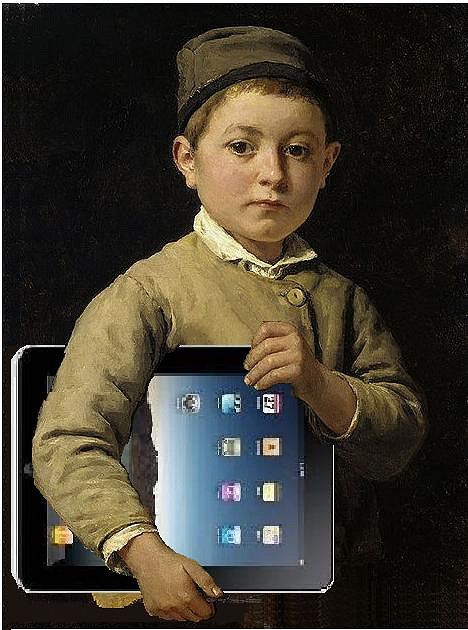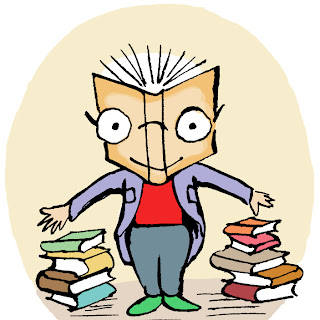Naming Your Characters
When I was a child, my mother seemed to be having a baby every year–we ended up with seven (I was the oldest). So baby names books were a staple in my house. I loved one in particular, which combined pictures of the most bonny babies you ever saw with etymologies and lots of names I never heard in school. Did you know Calvin comes from 'bald', Cameron means 'crooked nose', and Claudia means 'limping'? And that's just the C's! I was hooked for life on names.
I used to dream of meeting other people who shared my interest. The internet made my dream come true and I joined an online listserv of people around the world who are just as interested as I am. What does this have to do with children's books, you may ask? Well, it's about the names in them. How do you pick your characters' names?
 |
| Decisions, decisions.... |
Some people are lucky: their characters' names come into their head at the same time as the story. Of course, in one sense any name you pick is right, as long as you like it. But names are tricky. When they are 'wrong', it endangers the 'suspension of disbelief' a reader needs to enjoy your book. And when the names are right, they become memorable, and will ever afterward remind your reader of your book. I loved meeting Dolores Umbridge, the Hogwarts villain in Harry Potter and the Order of the Phoenix. In The Importance of Being Earnest, Gwendolen says to Jack, who is pretending to be named Ernest,
'My ideal has always been to love some one of the name of Ernest. There is something in that name that inspires absolute confidence. The moment Algernon first mentioned to me that he had a friend called Ernest, I knew I was destined to love you.'
Some tips for naming your characters:
–Be careful not to use too many names that begin or end with the same sounds. It's easier for the readers to mix them up. Also, if writing for younger readers, try to make sure they will be able to pronounce the name, or if it's not obvious, at least give a hint how it's pronounced, for example by having another character ask or mispronounce it.
–A memorable name is probably not one you hear all the time. Lucy, James, Charles? Give them an unusual surname or nickname.
–Keep an eye out for interesting names. I love the credits at the end of movies and television shows.
 |
| Credits on the X-Men film |
–The name should sound like the character. Did you know that Margaret Mitchell almost called Scarlett O'Hara 'Pansy'?
–What will children think of when they hear that name? Names you think are trendy might not be any more. Names can go out of style really fast. Even if you are only 25, the names that are popular in primary schools will be different from the ones when you were that age. Names that remind adults of some out-of-date reference from ten years ago are probably not too relevant to a ten-year-old. This is a tool for seeing how popular the name you are thinking of has been over time, although it is American, not British.
–Don't worry too much about the 'meaning' of a name. Who cares if John means 'gift from God' and Flavia means 'blond'? What matters is what your readers will call to mind when they hear the name. And you can help create that! Although sometimes names' meanings can be really cool. Did you know that 'katniss'–the name of the bow-and-arrow-wielding heroine of Hunger Games–is a plant of the genus sagittaria? As in Sagittarius, the Archer?
If you are curious what other people will think about a name, try the Bad Baby Name Forum, where you can ask a bunch of name-obsessed people from around the world for advice. The 'real-life sightings' page is also enlightening, funny, and possibly inspiring (twins Jamajesty and Hismajesty, siblings Chaos and Passion, and Titan, Abilene, Zion, Onyx, Ever, Sailor, Severn, Dune, Delight and Shard, among others). It's also a good place to check that that name you thought was so lovely for a French character isn't, say, a louse shampoo in France (true story).
–Say the name aloud. Is it confusing if read in a sentence?
–If your book is ever so slightly autobiographical, and your name is Emma and you name your protagonist Anna, you're not fooling anyone... you might want to choose a completely different sound, Ruth or Abigail, Cleo or Georgia.
–Google your character's name. This will keep you from finding out that a new movie or the book of some other writer, more famous than you, features the same name. If you are writing an unusually unpleasant character, try to make sure there is no real person with that name who shares too many of the same characteristics.
 |
| You wouldn't give your historical character an iPad. So don't give him the wrong name. |
–If you are writing about a time or place different from your own, do your research. Getting it wrong means a loss of your credibility–if not for children, who might not know the difference, then at least for the librarians, reviewers and parents who buy your book. For example, in a book I saw recently about a woman born in the 1920s, not only was the heroine's name completely improbable for that generation (like naming a Victorian girl 'Kimberly'), but it would have been actually illegal in that country because the naming laws were strict. This instantly made me think the author had not done her research. This goes double if you are writing about a different ethnic group. Even J.K. Rowling got in trouble for her names on that score.
If you are writing historical fiction (anything before twenty years ago can count), there is a great site for help, the Academy of Saint Gabriel. It started off as a group of volunteers that researched names for re-enactors, and it has an archive of names from all over Europe and as far away as Iran and China, with information on many specific names, and further hints for finding authentic names. My favourite page is their 'Problem Names Project', where you can learn all about names that might sound authentic to you, but aren't. (Don't name your medieval Scottish heroine Fiona. That name was invented by a novelist in the 19th century.) They also have a page listing unreliable names sites to avoid when naming characters.
 |
| Not Caitlin, Morrigan or Brianna either |
Want more advice on naming? Here are some useful links for writers.
Popular British names over the past 150 years
Names for fictional adolescent characters
An opinionated writer (i.e. he doesn't agree with me in loving Dolores Umbridge) on naming your fantasy characters
What kind of name is that? A Thai-American writes about the difficulty of getting the names right.
The U.S. Social Security Administration's lists of the top 1000 names since 1880, by decade
++++++++++++++++++++++++++++++++++++












This is brilliant. Naming characters is one of my favourite bits about writing but I'd not heard of many of the resources you talk about so THANK YOU… and i am so going to write a twins story now, just so i can use the 'majesty' names you give above! Classic.
ReplyDeleteThis is a super article, fun and useful with lots of fascinating links that I will follow when I’m not on a bumpy train. Names are important, as you say, and it is funny how if your character hasn’t got the right name, somehow it shows. Dickens set great store on hitting the right name, going through several possibilities (Copperstone etc) before getting to Copperfield, at which point he could start writing. Extraordinary.
ReplyDelete